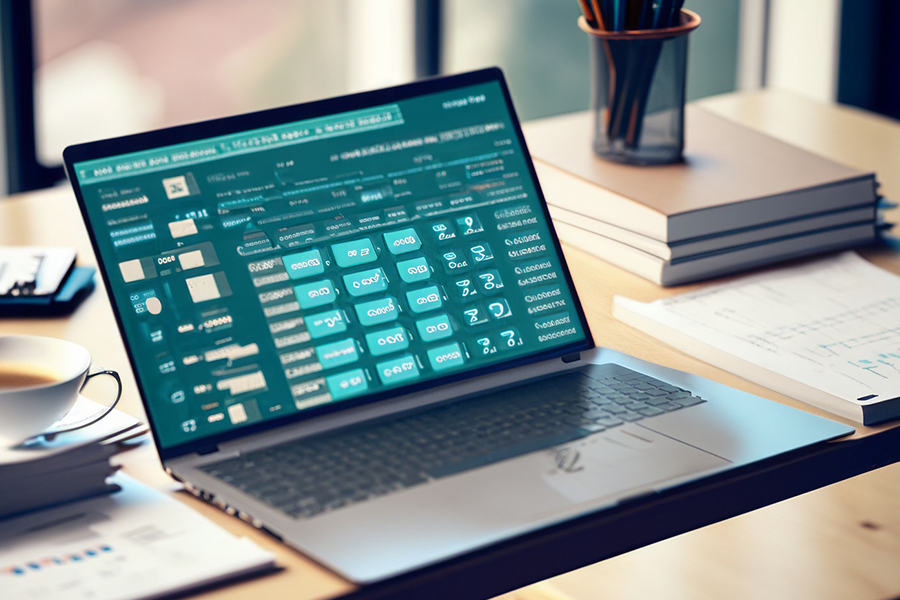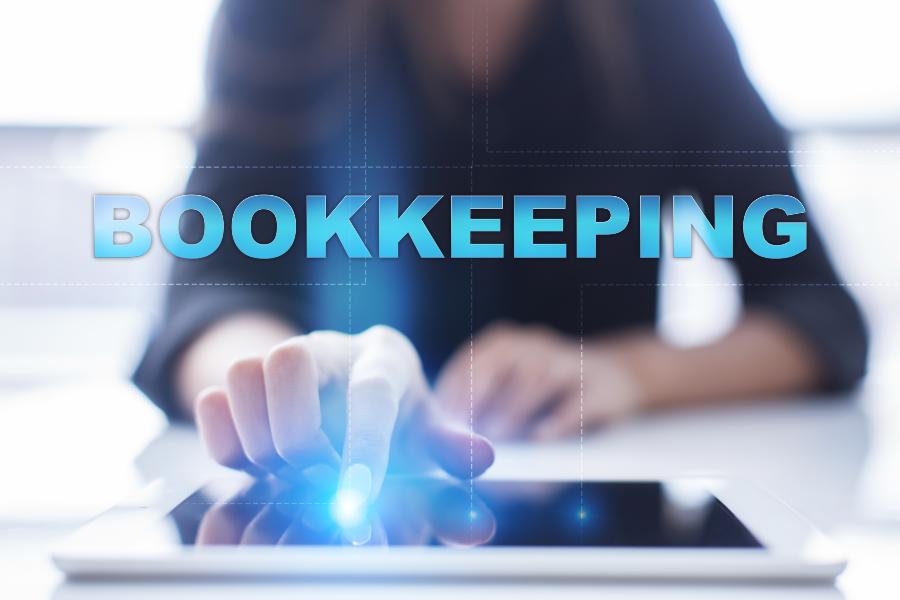You need accounting software if you’d like to avoid time-consuming report generation and manual data entry, improve organization, stay compliant, have a scalable accounting solution, and benefit from mobile access, among other things. The decision of whether your company needs accounting software hinges on several factors, including business size, complexity, financial acumen, and time constraints.
We’ll walk you through 10 reasons you may need accounting software to help you determine if it’s a good fit for your small business.
1. You Want to Save Time
Manual data entry, calculations, and generation of reports is time-consuming. Accounting software automates many of those tasks, allowing you to focus on other aspects of your business.
You can do the following:
- Sync with your bank accounts to import transactions directly into the software, eliminating manual entry.
- Set up recurring invoices for regular clients, saving time and ensuring timely billing.
- Create customized reports with a few clicks, providing valuable financial insights without manual calculations.
- Categorize expenses easily with features like expense reports, receipt scanning, and automatic categorization, streamlining the accounting process.
2. You Seek to Reduce Errors
Manual calculations and data entry are susceptible to human error. Accounting software minimizes these risks by using double-entry bookkeeping, which ensures accuracy. It performs calculations automatically, and built-in features can identify potential errors, such as mismatched entries or missing information.
Depending on the software, you can track changes to your financial data, which allows you to revert to previous versions if necessary. You can also define and automate workflows for tasks like expense approvals, invoice creation, and payment processing—which improves efficiency and reduces errors.
3. You Need Valuable Financial Insights
Understanding your company’s financial performance is crucial for making informed decisions—and accounting software offers real-time data. This gives you access to up-to-date financial information at any time.
You can generate customized reports to analyze specific areas of your business, such as profitability, cash flow, and expenses. You’ll be able to identify patterns and trends in your financial data to make data-driven decisions and to create financial projections to plan for future growth and expenses.
4. You Want to Improve Organization
Sometimes, keeping track of financial documents and records can feel overwhelming. Accounting software helps you centralize data by storing all information in one place for easy access and retrieval. It also allows you to organize transactions by categorizing and classifying them within the software.
You can create, send, and track invoices, as well as record payments, which helps you to stay on top of your accounts receivable. If you track inventory, you can use it to monitor inventory levels, costs, and sales.
5. You Require Help Staying Compliant
It is essential to stay compliant with tax laws and regulations to avoid penalties and legal issues. Accounting software accurately records income and deductible expenses for tax purposes and allows you to create reports required for tax filings, such as profit and loss statements and balance sheets.
Many accounting software providers offer the ability to calculate and collect sales tax, if that is relevant to your business. They also offer updates to reflect changes in tax laws.
6. You Appreciate Enhanced Cash Flow Management
The ability to manage cash flow is vital. Accounting software helps you track cash inflows and outflows by monitoring your cash position in real-time and enables you to do the following:
- Create cash flow forecasts to predict future cash needs and plan accordingly.
- Detect potential cash shortages and take corrective action.
- Improve collection efforts by tracking outstanding invoices and sending late reminders to customers.
7. You Seek to Simplify Tax Preparation
Tax preparation can be a complex and time-consuming process. Some accounting software integrates with tax preparation software for a seamless process, and you can use them to categorize income and expenses for tax purposes and to create reports for tax filings, such as Schedule C and Form 1099. You can often receive insights and recommendations to help you maximize deductions.
8. You Want a Scalable Accounting Solution
Most accounting software is designed to grow with your business, and as your company expands, your financial needs will become more complex. Scalable accounting software can accommodate this growth by handling an increased volume of transactions efficiently without slowing down.
Additionally, as your business grows, you may need to integrate your accounting software with other systems that handle inventory, customer relationship management (CRM), or payroll. Scalable accounting software can accommodate these integrations.
As your team expands, scalable accounting software lets you add user accounts with different permissions to access and manage financial data. You may also need additional features or modules, in which case, you could seek out accounting software that allows you to add features as needed without switching to a completely new system.
9. You Need to Improve Collaboration
Accounting software can significantly enhance collaboration within your business by allowing multiple users to access and update financial information simultaneously, ensuring everyone is on the same page. It lets you assign specific permissions to different users, allowing for controlled access to sensitive financial data.
It also allows for centralized document storage, where you can store invoices, receipts, and other financial documents in one place, accessible to authorized team members. Built-in messaging and collaboration tools can facilitate communication about financial matters.
10. You Benefit From Mobile Access
If you work remotely, you know the importance of staying connected to crucial aspects of your business. Mobile access to accounting software has become essential for many companies. Key benefits to mobile access include real-time insights, where you can check financial performance on the go.
Mobile accounting apps also allow you to access customer information and transaction history quickly to address any inquiries. You can capture and submit expense reports with photos of receipts directly from your mobile device and reconcile bank accounts or categorize transactions when you’re on the road.
Pros & Cons of Accounting Software
| PROS | CONS |
|---|---|
| Improves efficiency by automating tasks | Comes with an initial investment for implementation and ongoing subscription fees |
| Provides valuable financial reports and analysis | May have a learning curve |
| Centralizes financial data and improves recordkeeping | Presents the potential risk of data breaches |
| Helps with tax preparation and regulatory requirements | Is reliant on internet connectivity for access (for cloud-based platforms) |
Frequently Asked Questions (FAQs)
If you are handling more than a few transactions, tracking inventory, or needing to generate detailed reports, accounting software is highly recommended. It saves time, reduces errors, and provides valuable financial insights.
The best choice depends on your preferences and business needs. Desktop software offers more control over data but requires installation and maintenance. Cloud-based software is accessible from anywhere but relies on a stable internet connection. For a more in-depth exploration of this question, read our cloud vs desktop accounting software comparison.
Most accounting software is designed with user-friendliness in mind. However, the learning curve may vary depending on your accounting knowledge and the tool’s complexity. Many software providers offer tutorials and customer support to help you get started.
Yes, as many small business owners successfully perform their own bookkeeping tasks. However, it requires time, accounting knowledge, and organization. Factors like business size and complexity also play a role, and using accounting software can greatly simplify the process. If you’re unsure about your capabilities, consider meeting with an accountant for guidance.
It might be unnecessary in the following scenarios:
- If you’re a sole proprietor with minimal transactions and simple financial needs, you could use basic spreadsheets to track income and expenses.
- If you possess in-depth accounting knowledge and enjoy handling financial matters, you might prefer manual bookkeeping.
- If your business is seasonal and experiences significant fluctuations in revenue and expenses throughout the year, you might find it easier to manage your finances manually during slow periods.
Bottom Line
While manual bookkeeping or spreadsheets might suffice for some, the advantages of accounting software in terms of efficiency, accuracy, and financial insights are undeniable. By carefully evaluating the needs of your business and exploring available options, you can make an informed choice that best suits your financial management goals. Remember, investing in the right tools can significantly impact your company’s overall success.


